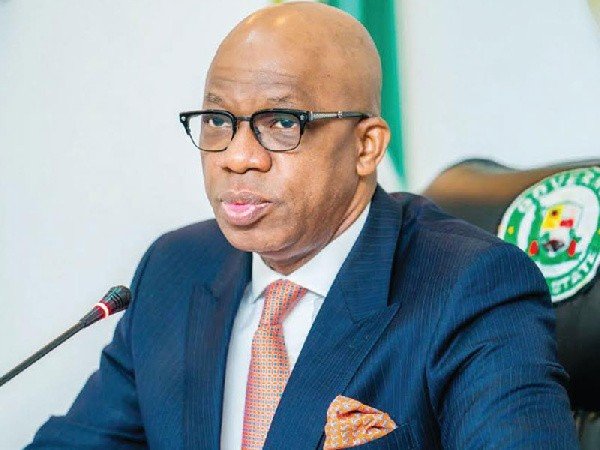Economy
Nigeria faces its most serious economic crisis ever – Osinbajo

Adebayo Obajemu
The report is gloomy and a bad news for the already despondent Nigerians who have suffered economic losses as a result of the pandemic and the attendant lockdown.
On Thursday, Yemi Osinbajo, the country’s vice president who headed Nigeria’s Sustainability Committee, submitted its report to President Muhammadu Buhari, with a damning verdict
that Nigeria is facing its most serious economic trouble ever.
Recall on March 30, President Buhari established the nine-member committee to develop a clear Economic Sustainability Plan in response to the health and economic challenges posed by the COVID-19Pandemic and identify fiscal measures for enhancing distributable oil and gas revenue, increasing non-oil revenues and reducing non- essential spending, towards securing sufficient resources to fund the plan.
Mr Buhari also charged the committee to propose monetary policy measures in support of the Plan; provide a Fiscal/Monetary Stimulus Package, including support to private businesses (with emphasis on strategic sectors most affected by the pandemic) and vulnerable segments of the population; articulate specific measures to support the States and FCT; propose a clear-cut strategy to keep existing jobs and create opportunities for new ones; and identify measures that may require legislative support to deliver the Plan.
In its 76-page report, the committee, delivered a damning verdict – saying Africa’s most populous nation and largest economy is facing “perhaps the most challenging economic downturn in its history”.
“Nigeria is currently faced with perhaps the most challenging economic downturn in its history just as the global economy is also confronting its sharpest reversal in a generation. With every country dealing with varying degrees of the same problem, there are few places to turn for help.
“For Nigeria, this is a multilayered quandary: a health crisis, a near-total shutdown of economic activities, capital flow reversals and a fast increasing unemployment rate, fuelled by layoffs in almost all sectors of the economy.
“Nigeria’s status as an oil-dependent developing economy also puts us in a particularly difficult place. Government revenues have declined significantly, first, on account of the fall in crude oil prices to as low as $12 per barrel in April 2020, and then our inability at times to sell oil, despite its being priced below production cost, because of the shutdown in virtually every area of
manufacturing, services and commerce all over the world. Where this happens, it means that we get virtually no revenues from our oil.
“In effect, our major sources of foreign exchange are gravely threatened and our external reserves get little or nothing by way of augmentation. Rather, they are being depleted for external payments and importation.
“Non-oil revenue, largely made up of taxes, has also practically dried up. This is because, like several economies around the world, Nigeria is faced with paralysis of economic activities due to lockdown measures in the Federal Capital Territory and the key commercial and industrial centres of Lagos, Ogun and Kano States. In addition, several other State Governments took similar steps to slow the spread of COVID-19 in their respective territories. These have cumulatively resulted in supply chain disruptions, suspension of commercial activities and large-scale job losses.









